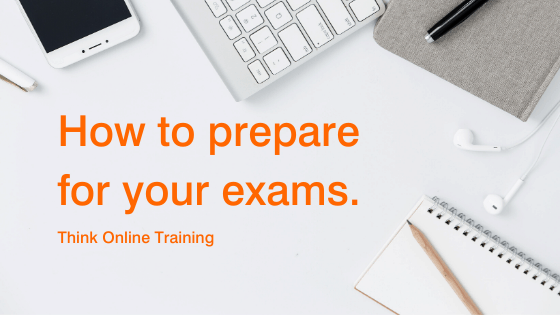1. Start studying early
We all know the saying “fail to prepare, prepare to fail.” Do your future self a favour and start preparing early. That way, you won’t be rushing around a few days before the exam, trying to remember everything you need to know. It’s a good idea to give yourself at least a month, depending on how large the subject is.
2. Figure out what you need to revise
Go through your study notes and make a list of topics you need to revise. You might find that you are already confident in some areas so don’t need to spend as much time on those. This will give you the opportunity to allocate more time to the harder topics.
3. Organise your study schedule
Now that you’ve figured out what you need to learn, break that down into small chunks and figure out when you’re going to learn it. Having set days or times for study will encourage you to stick to a revision timetable.
4. Test yourself as you go
It’s important to be able to apply what you’re learning to real exam questions. Most exam boards have loads of past papers online for free. Just be sure to choose the right exam board and paper series.
5. Create flashcards
A huge page of notes can be a bit overwhelming if you’re stressed about revising. Flashcards allow you to pick out important areas and condense your notes into an easy-to-digest format. You can also take them with you and use them as a last minute study tool before the exam.
6. Try to teach someone else
A foolproof way of finding out if you understand a topic is to try and teach it to someone else. If you can’t explain the topic in enough detail so that someone else can understand it, then you may need to consider going back over your notes.
7. Take regular breaks
If you were training for a marathon, you wouldn’t run 24 hours a day. The same applies for revising. Remember to pace yourself so you don’t burn out after one revision session. Studies show that taking regular breaks can be really good for long-term knowledge retention.
8. Drink water and eat healthy snacks
You need brain food and good hydration to keep yourself going. Slow energy release foods are ideal for exam day as they’ll provide you with that all important boost. Stay away from junk food that will ruin your focus.
9. Get plenty of rest
Did you know, while you’re asleep, your brain is busy forming new memories and strengthening old ones. So sleep is vital when revising. If you don’t sleep then your brain cannot form those memories and all your revision will have been for nothing! That includes the night before the exam. You don’t want to be tired on exam day.
10. Plan your exam day
On the morning of your exam, wake up in plenty of time. Before your exam, run through all the topics and themes in your head, checking you notes where necessary. Stop studying at least 15 minutes before the test begins. If you’ve given yourself enough time, you should feel prepared and relaxed.



